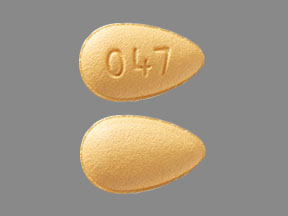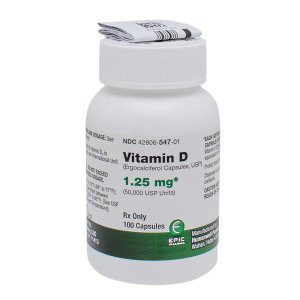Delivery Method: VIA EMAIL WITH READ RECEIPT Reference #: 320-25-51 Product: Drugs Recipient:
Recipient Name
Mr. Achal Agrawal
Macsen Drugs
F-261, 262, 263 Riico Industrial Area, Gudli
Tehsil Mavli, Udaipur 313024
Rajasthan
India
Issuing Office: Center for Drug Evaluation and Research (CDER)
United States
Warning Letter 320-25-51
March 5, 2025
Dear Mr. Agrawal:
The U.S. Food and Drug Administration (FDA) inspected your drug manufacturing facility, Macsen Drugs, FEI 3015794560, at F-261, 262, 263 Riico Industrial Area Gudli, Tehsil Mavli, Udaipur, Rajasthan, India, from September 2 to 6, 2024.
This warning letter summarizes significant deviations from Current Good Manufacturing Practice (CGMP) for active pharmaceutical ingredients (APIs).
Because your methods, facilities, or controls for manufacturing, processing, packing, or holding do not conform to CGMP, your APIs are adulterated within the meaning of section 501(a)(2)(B) of the Federal Food, Drug, and Cosmetic Act (FD&C Act), 21 U.S.C. 351(a)(2)(B).
We reviewed your September 27, 2024 response to our Form FDA 483 in detail and acknowledge receipt of your subsequent correspondence.
During our inspection, our investigator observed specific deviations including, but not limited to, the following.
1. Failure of your quality unit to exercise its responsibility to ensure the API manufactured at your facility are in compliance with CGMP.
Your facility is subdivided into “Blocks” sharing walls and hallways. Your facility experienced a significant fire in Block (b)(4) on December 5, 2022. Additional areas affected included Block (b)(4), where your firm stored (b)(4) finished API lots. You moved your APIs after they were exposed to improper storage conditions and identified (b)(4) lots of (b)(4) API and (b)(4) lots of (b)(4) API as impacted by the fire in your incident report. Although these lots were impacted by the fire, your quality unit (QU) released (b)(4) lots of (b)(4) API and (b)(4) lot of (b)(4) API for distribution to the U.S. market.
In your response, you propose to update your procedure for handling of incidents and deviations. You also attempt to recreate the worst-case condition for finished drugs stored in Block (b)(4) at the time of the fire by placing (b)(4), and you conclude there was no product impact.
Your response is inadequate. Your response attempts to justify that your drugs, exposed to improper conditions, are acceptable. Drugs that have been subjected to improper storage conditions, including extremes in temperatures and smoke, are considered adulterated and are not suitable for distribution in the U.S. supply chain. Further, you do not commit to initiate a market action against the lots your incident report identifies as “impacted and degraded”.
For more information regarding drugs exposed to conditions resulting from a fire, please refer to Questions and Answers on Current Good Manufacturing Practice Requirements | Returned and Salvaged Drug Products at https://www.fda.gov/drugs/pharmaceutical-quality-resources/questions-and-answers-current-good-manufacturing-practice-requirements-returned-and-salvaged-drug.
In response to this letter, provide:
- A comprehensive assessment and remediation plan to ensure your QU is given the authority and resources to effectively function. The assessment should also include, but not be limited to:
o Your revised procedures to ensure that unexpected events that may pose a risk to your products are adequately managed.
o Provisions for QU oversight throughout your operations to evaluate adherence to appropriate practices.
o A complete and final review of each lot and its related information before the QU disposition decision.
o Oversight and approval of investigations and discharging of all other QU duties to ensure identity, strength, quality, and purity of all products. - Your action plan to address any product quality or patient safety risks for all lots of (b)(4) API in U.S. distribution you identified as impacted by the December 2022 fire, including customer notifications and recalls.
2. Failure of your quality unit to ensure that there is stability data to support retest or expiry dates and storage conditions of API.
Based on the records and information provided for stability, you did not demonstrate the quality attributes of your API lots remain acceptable throughout the labeled expiry period.
You experienced numerous power failures in your stability chambers over the past two years. These failures extended for up to 40 hours. You also lack data loggers to monitor and document actual conditions in the event of a failure or power loss.
Your response is inadequate. You acknowledge your stability program is inadequate. You commit to update your stability procedure regarding power failures and conduct a study to “determine the trend of temperature and humidity in the powered-off condition and make it part of equipment qualification.” You do not provide your study protocol or risk assessment “regarding electrical connection, power supply, power surge & voltage disruption.”
In response to this letter, provide:
- A comprehensive, independent assessment and corrective action and preventive action plan to ensure the adequacy of your stability program. Your remediated program should include, but not be limited to:
o Stability indicating methods.
o Stability studies for each drug product in its marketed container-closure system before distribution is permitted.
o An ongoing program in which representative batches of each product are added each year to the program to determine if the shelf-life claim remains valid.
o Detailed definition of the specific attributes to be tested at each station (timepoint). - All procedures that describe these and other elements of your remediated stability program.
Conclusion
The deviations cited in this letter are not intended to be an all-inclusive list of deviations that exist at your facility. You are responsible for investigating and determining the causes of any deviations and for preventing their recurrence or the occurrence of other deviations.
Correct any deviations promptly. FDA may withhold approval of new applications or supplements listing your firm as a drug manufacturer until any deviations are completely addressed and we confirm your compliance with CGMP. We may re-inspect to verify that you have completed corrective actions to any deviations.
This letter notifies you of our findings and provides you an opportunity to address the above deficiencies. After you receive this letter, respond to this office in writing within 15 working days1. Specify what you have done to address any deviations and to prevent their recurrence. In response to this letter, you may provide additional information for our consideration as we continue to assess your activities and practices. If you cannot complete corrective actions within 15 working days, state your reasons for delay and your schedule for completion.
Send your electronic reply to CDER-OC-OMQ-Communications@fda.hhs.gov. Identify your response with FEI 3015794560 and ATTN: Carlos Gonzalez.
Sincerely,
/S/
Francis Godwin
Director
Office of Manufacturing Quality
Office of Compliance
Center for Drug Evaluation and Research
_______________
1 Under program enhancements for the Generic Drug User Fee Amendments (GDUFA) reauthorization for fiscal years (FYs) 2023-2027, also known as the GDUFA III Commitment Letter, your facility may be eligible for a Post-Warning Letter Meeting to obtain preliminary feedback from FDA on the adequacy and completeness of your corrective action plans.








